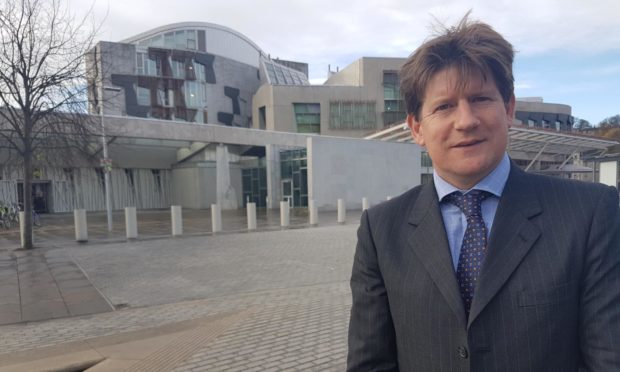The Scottish Government has been urged to set up a national register to accurately record the number of people whose lives have been blighted by long Covid.
There is increasing evidence that for those who cannot put the virus behind them there is the threat of an array of debilitating conditions, including the potential for organ damage.
Aberdeenshire West Tory MSP Alexander Burnett was contacted by a nurse who contracted Covid while working in a care home in April last year.
-
Explainer: What is long Covid? What are the symptoms?
-
Long Covid: Lack of specialist clinics in Scotland ‘putting lives in danger’
-
RGU to head up investigation into long Covid treatments
Since then she has been unable to return to work and now suffers from long Covid, which has had a significant impact on her life.
She is now confined to her home and unable even to walk her dog.
In light of her struggles, and those of others, Mr Burnett has submitted a written question to the Scottish Government calling for the creation of a national register to highlight the high number of people suffering from the illness.
He said: “Sufferers of long Covid have told me it’s worse than having coronavirus in the first place.
“The stories I have heard from constituents have been terrifying and absolutely devastating.
“Sufferers have told me they are often confined to their homes because they are so ill.
“This is potentially a massive issue for the likes of NHS Grampian, which at the moment is barely being acknowledged by the Scottish Government.
“The lack of support given to sufferers is completely shameful to the people who have had their lives turned upside down by long Covid.
“I have submitted a written question on the prospect of a national register so numbers can be recorded and action taken to reduce the number of cases.”
Long Covid presents as a range of different symptoms suffered by people weeks or months after being infected with the virus – some of whom weren’t seriously ill when they had it.
Common symptoms include breathlessness, headaches, coughs, fatigue and cognitive impairment or ‘brain fog’.
There is also emerging evidence that some people experience organ damage.
According to the British Medical Journal, it is thought to occur in approximately 10% of people infected – but that number only represents those who have been tested, meaning some who caught the virus in the early stages of the pandemic will be missing from the figures.
The long Covid sufferer who contacted Mr Burnett said: “It has completely changed my life as I knew it.
“It feels like I’ve been abandoned. I’m unable to walk my dog and I’m basically stuck at home and not able to do very much.
“I was fit and healthy with no underlying health conditions prior to contracting Covid and I’m unsure if I will be able to return to work as a registered nurse.
“I hope the campaign for more support for long Covid sufferers continues because I feel there is very little support for me from the Scottish Government at the moment.”
In her response to Mr Burnett’s question, health secretary Jeane Freeman said there were no plans to introduce a national register in Scotland.
A Scottish Government spokeswoman said: “We recognise the need to better understand of the frequency, nature, and impact of Long Covid in the Scottish population and we have not ruled out the creation of a register. That is why we have funded nine extensive Scottish-led research projects on Long Covid through £2.5 million, which will greatly improve the clinically relevant knowledge base on the long-term effects of Covid-19.
“Scottish Health Boards are participating in the UK-wide PHOSP-Covid study funded by UK Research and Innovation to understand and improve long-term health outcomes for patients who have been in hospital with confirmed or suspected Covid-19. We will continue to assess the latest available evidence alongside clinical guidance.
“We are also working closely with the Office for National Statistics, to explore how data generated from the Covid-19 Infection Survey will allow for future analysis of Long Covid in the community population in Scotland.”
